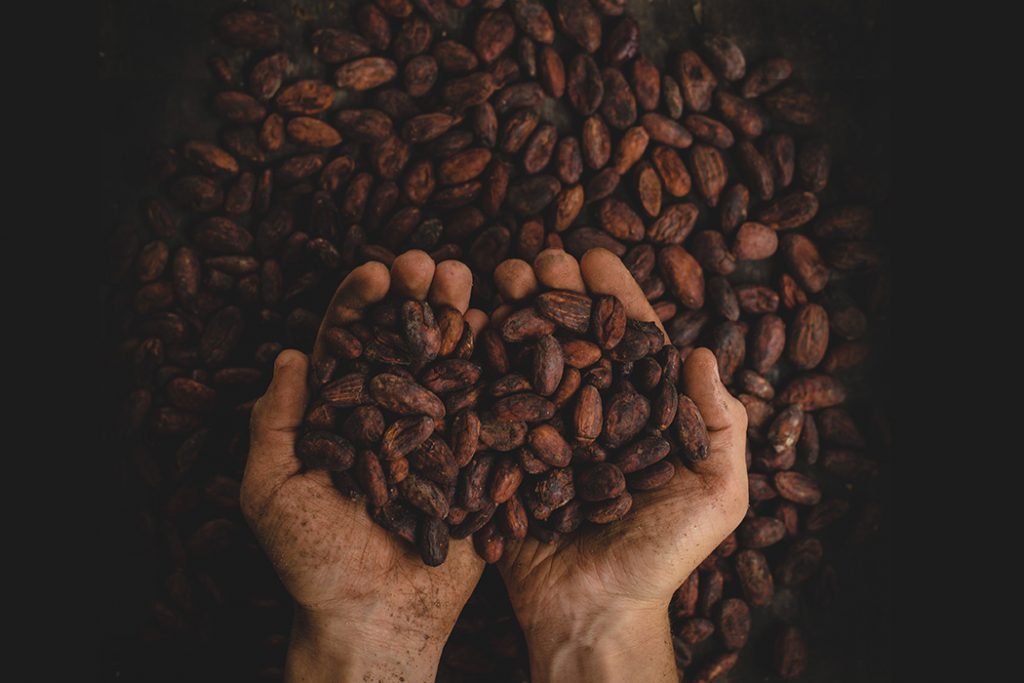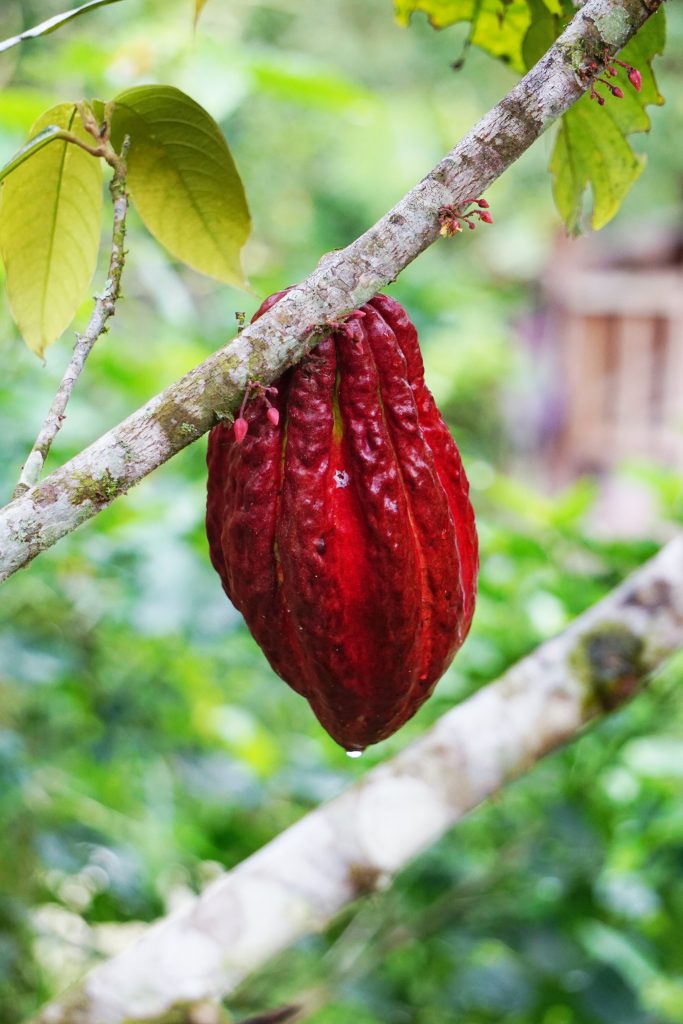Cacao is quickly rising in its superfood fame. And yes—we’re talking about the same cacao that’s found in dark chocolate (you’re welcome).

If you’re wondering, “What is cacao, anyways?” (pronounced ca-COW), you’ve definitely had some form of it in your life. Raw cacao comes from the Amazon-native cacao tree and is the less-processed version of the cocoa you see in many foods and beverages today.
The difference between cacao and cocoa: Raw cacao boasts a wide range of health-promoting nutrients, whereas cocoa undergoes high heat and is then combined with large amounts of sugar, thus killing off many of the positive health benefits it once had.
What Is Cacao?
It makes sense why Theobroma cacao is known as The Food of the Gods. Its rich, chocolatey taste is what manifested the multi-billion dollar chocolate industry we see today.
But first, let’s get something straight…
Cacao has an abundance of health benefits, but those benefits come from eating the right chocolate. Aka, organic dark chocolate.
The difference between organic dark chocolate and regular milk chocolate is the amount of processing it has undergone.
Cacao started gaining popularity with its richness in polyphenols—particularly flavonoids. Flavonoids are plant extracts that—when consumed in high amounts—show a lower risk of chronic diseases through their anti-inflammatory properties.
With over 600 compounds in the cacao bean alone, there are a few that stand out and give cacao its rich health history.
Polyphenols, catechins (a type of polyphenol), and flavanols, all of which are discussed below…

Health Benefits of Cacao
Cacao touts numerous health benefits. Let’s dive in…
1. The #1 Source of Magnesium
With 27 milligrams of magnesium per tablespoon, cacao is cited as one of the best natural sources of magnesium in the world.
And with nearly half (48%) of the U.S. population deficient in this miracle mineral, we need more cacao in our diet than ever before.
Magnesium is responsible for over 300 different chemical reactions in our body—including a relaxation of our muscles (fun fact: it’s called “nature’s tranquilizer”), prevention of high blood pressure, and reduced inflammation.
2. High in Antioxidants
When you think of antioxidant-rich foods, you may think of green tea, wine, and blueberries, but cacao actually outdoes all of those.
Cacao actually dominates the antioxidant count in blueberries—nearly doubling the antioxidant potency found in blueberries.
The higher antioxidant content in cacao is due to its high flavonoid content.
3. Acts as a Probiotic
Just when you think cacao can’t do anything else, it does.
In a recent investigation conducted by Nabil Hayek, cacao and/or chocolate proved to modify intestinal flora in the same way that prebiotics and probiotics do. In one controlled, double-blind, randomized clinical trial, participants were to either consume a high-cacao drink or a low-cacao drink. Through this, researchers saw a positive interaction between gut microbiota and metabolism among participants— with a significant increase in gut microbes like Bifidobacteria and Lactobacilli.
In another in vitro study, probiotics (Lactobacillus helveticus and Bifidobacterium longum) were embedded in dark and milk chocolate or liquid milk, which proved to offer superior protections (91% and 80% survival in milk chocolate for L. helveticus and B. longum).
Chocolate covered probiotics? Sign us up.
4. Improves Heart Health
Cardiovascular diseases are the leading cause of death in the United States, with associated costs nearing $403.1 billion.
With that, there have been numerous dietary intervention trials conducted with flavanol-containing foods, and cacao made the cut.
When participants consumed cacao in a study conducted in 1996, a wide range of health benefits was seen…from an increase in antioxidant capacity to evidence of vascular benefits like an attenuation of platelet reactivity, improved vascular function, improved insulin sensitivity, and reductions in blood pressure.
And because blood pressure is the underlying risk of cardiovascular diseases, flavanol-containing cacao is a promising option to reduce blood pressure by 3-5 mmHg.
5. Elevated Mood and Anti-Depressant
Studies have shown that cacao enhances cognitive performance and mood—with five out of eight studies showing either an improvement in mood state or a reduction of negative mood.
And when it came to assessing cognitive enhancement, three out of the eight studies revealed clear evidence following the consumption of cocoa flavanols and methylxanthine.
Final Thoughts on Cacao
So, eating organic dark chocolate that’s at least 70% cacao will have you reaping the health benefits in no time.
Who knew eating chocolate would feel so guilt-free?
References
Health Benefits of Methylxanthines in Cacao and Chocolate
Cacao biotechnology: current status and future prospects
Cocoa has more phenolic phytochemicals and a higher antioxidant capacity than teas and red wine
Flavonoids as anti-inflammatory agents
Anti-inflammatory properties of dietary flavonoids
Flavanol-rich cocoa: a cardioprotective nutraceutical
Effects of cocoa flavanols on risk factors for cardiovascular disease
https://www.sciencedirect.com/science/article/abs/pii/S0168160510001200?via%3Dihub
Cacao seeds are a “Super Fruit”: A comparative analysis of various fruit powders and products
Effects of chocolate on cognitive function and mood: a systematic review
Cocoa: Uses, Side Effects, Interactions, Dosage, and Warning

